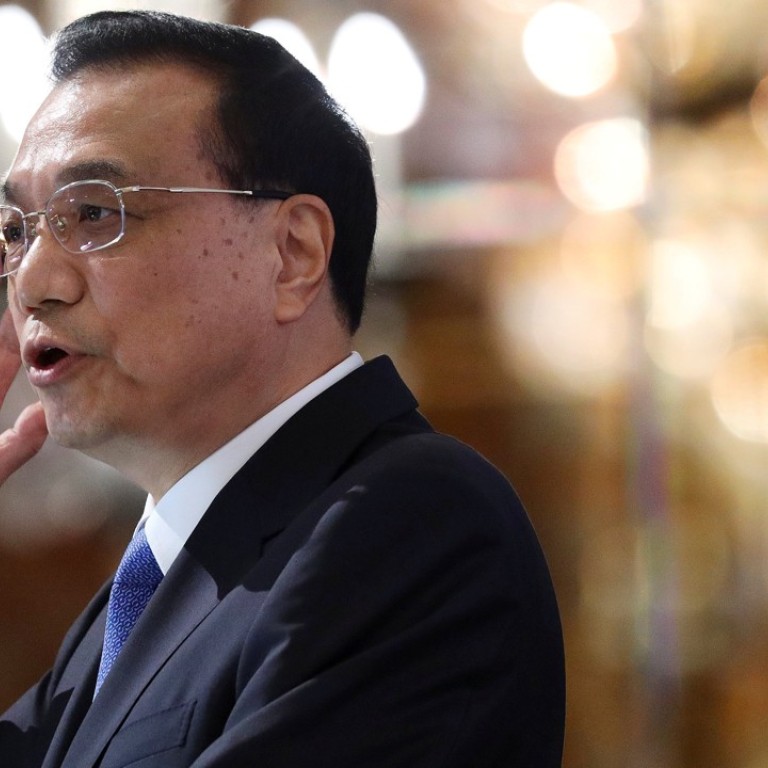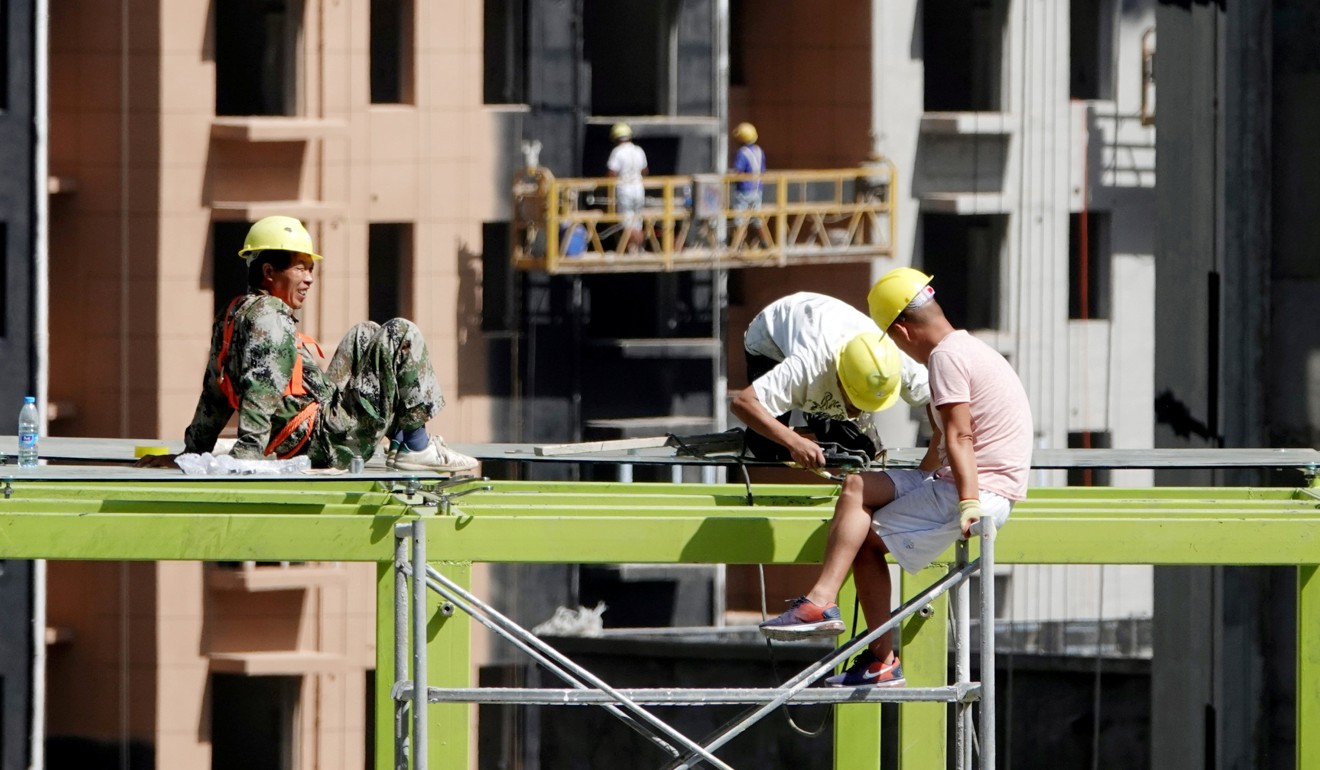
Chinese Premier rejects economic stimulus option as latest data shows more weakness
- Li Keqiang says ‘massive stimulus’ like 2008 not on Beijing’s radar, even as new data shows further downside
- New bank lending falls sharply in October, suggesting businesses reluctant to invest given uncertainties created by the trade war
The Chinese government has no plans to resort to a “massive stimulus” similar to that of 2008 as a way to manage its slowing economy amid the trade war with the United States, Premier Li Keqiang said on Tuesday.
Instead, Beijing will focus its policies on “energising the market, in particular market entities” and creating “fair and equal regulations” to maintain momentum in the world’s second biggest economy, Li said in a speech before attending the annual summit of the Association for Southeast Asian Nations in Singapore.
“Despite the downward pressure, we will not resort to massive stimulus,” Li said.
His comments came as the People’s Bank of China released data showing that bank lending slowed sharply in October to a level well below expectations, suggesting businesses are reluctant to proceed with investments given the economic uncertainty created by the trade war with the United States.
Chinese banks extended 697 billion yuan in net new yuan loans in October, just about half of the 1.38 trillion yuan in the month before and below the median forecast for lending of 862 billion yuan in a Reuters survey of economists, according to central bank figures released on Tuesday. Nationwide fiscal revenues in October fell 3.1 per cent from the same month last year, limiting the government’s scope for increased spending.
The lending figures for the first month of fourth quarter could reinforce concerns that the Chinese economy is slowing faster than expected. In the third quarter, China’s economic growth rate decelerated to 6.5 per cent, the slowest growth rate since the first quarter of 2009. Analysts expect growth to slow further early next year as the full impact of the trade war is felt.
A further reading of the economy’s performance will come on Wednesday, when the National Bureau of Statistics is expected to release investment, consumption and industrial production figures for October.
Li said that Beijing will take steps to support to investors and “crack down harshly” on intellectual property rights infringement and other such activities, in an apparent move to address concerns from foreign businesses.
Beijing will do so to “maintain the vitality of the market and health of the market so that investors will be treated as they need to be”, Li said.

As for trade talks with Washington, Li said Beijing hoped “the negotiations will be carried out on the basis of mutual respect, mutual benefits and good faith” to reach a solution that is acceptable to both sides.
“There is no winner in any trade war,” he said. “We shall have confidence in the wisdom of the Chinese and American people … to find mutually acceptable solutions.”
Li said that China and the US are part of a global supply chain and China does not want to see “disruptions to this supply chain”.
Chinese Vice-Premier Liu He is expected to visit the United States soon for talks with his counterparts there aimed at easing rising trade tensions before the two countries’ leaders meet at the end of this month at the G20 gathering in Argentina.
Under Li’s predecessor, Wen Jiabao, the Chinese government in 2008 rolled out a stimulus programme – regarded as the biggest such spending package in human history – to offset the effect of the global financial crisis, leaving behind a mountain of debt and underused capacity.
Chinese leadership, headed by President Xi Jinping, which came into power six years ago, put debt reduction at the centre of Beijing’s economic policy mix, but Beijing has tweaked its policies since this summer to put a higher priority on supporting growth, including accelerating spending on infrastructure and easing its monetary policy stance to increase lending to small and medium-sized firms that are struggling in response to a growth slowdown at home and trade war headwinds from abroad.

